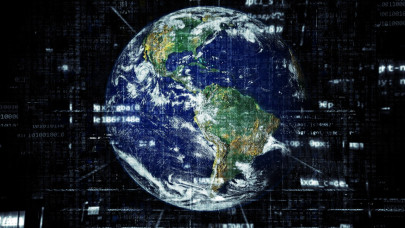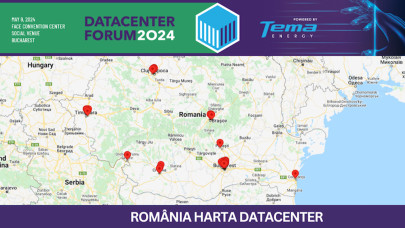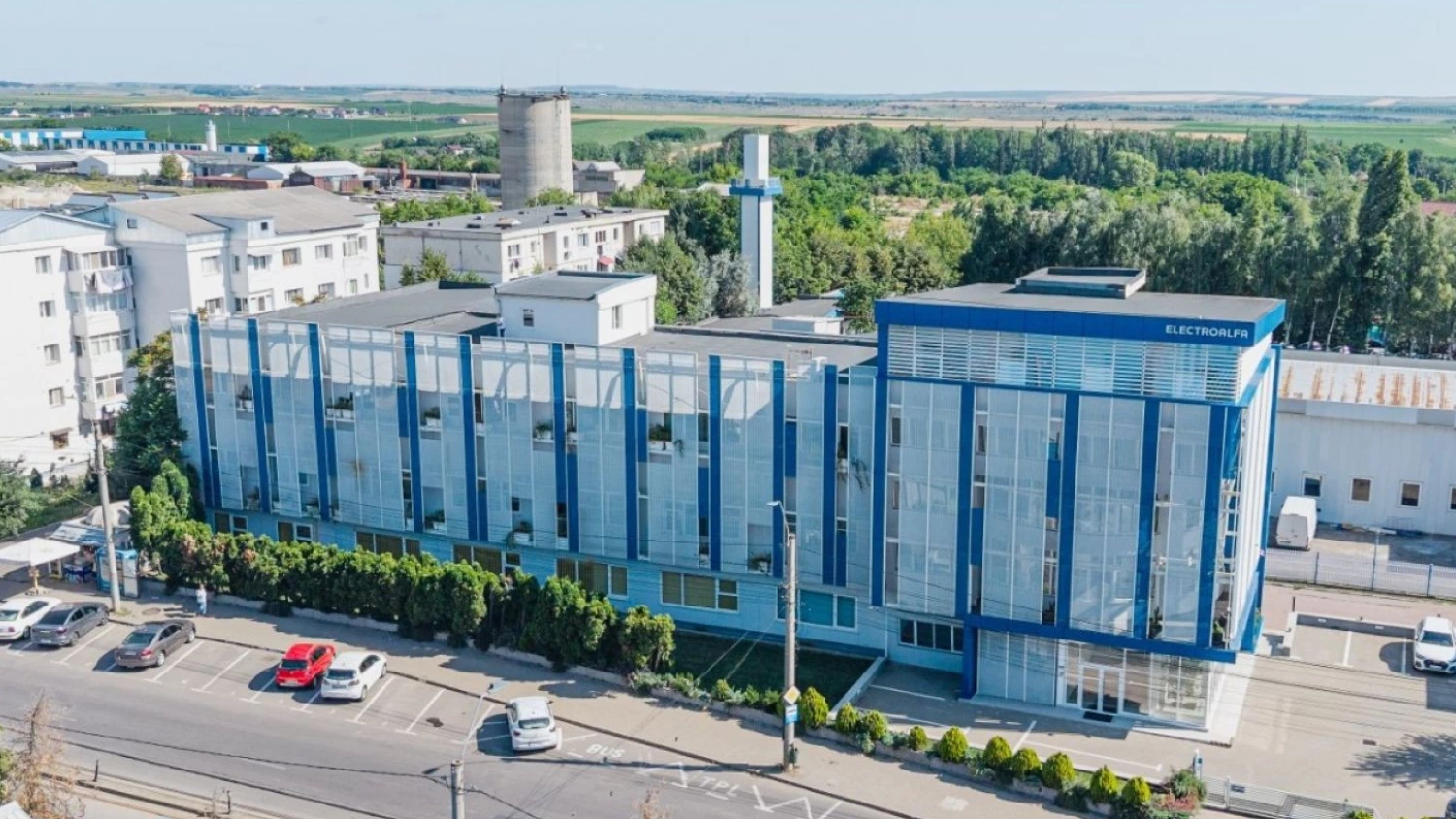By definition, data centers play a critical role in the digital economy, but they are also recognized for their high energy consumption. The global trend indicates an exponential increase in energy demand for data centers, which is expected to double by 2026, according to the International Energy Agency (IEA). The growth comes amid the fast-paced development of Artificial Intelligence, which comes with a host of benefits, but also considerably higher consumption. For example, a single AI query consumes ten times more energy than a standard Google search.
In Romania, the evolution of data centers has been accelerated in recent years by the growth of digital needs, and the use of AI adds a new dimension to this equation. The demand for cloud services, data storage, and processing has grown significantly, driving the development of new data centers, particularly in major cities such as Bucharest and Cluj-Napoca. However, the intensive use of AI technologies entails enormous energy consumption, given that training and running AI models require massive processing capacities.
Romanian data centers have registered a significant increase in energy consumption in recent years, reflecting the expansion of the digital sector and growing data processing needs, including those in AI. A notable example is ClusterPower in Craiova, which is the largest data center in South-East Europe and has its own power supply, using a 200 MW trigeneration plant.
"With the sector as a whole growing significantly, it is crucial that the demand for electricity is met by renewable energy generation rather than carbon-intensive fossil fuels. While some regions have made impressive progress in implementing renewable energy, others lag behind, creating disparities that undermine global sustainability goals. Even the new mandatory target set by the EU Energy Directive, ensuring at least 42.5% of energy comes from renewable sources, fails to address the rapidly growing energy demands of the digital age," says Gabriel Tache, CEO of Eaton Romania.
With the exponential growth of AI usage and the expansion of data centers in Romania, protecting these facilities becomes essential to ensure the continuity of critical operations. Beyond the increasing energy demand, the reliability of energy infrastructure is crucial. In this context, the use of UPS (Uninterruptible Power Supply) systems is necessary to protect data centers from power outages or voltage fluctuations that could affect highly sensitive computing equipment and processes.
But UPS systems are more than just essential components for ensuring continuous power supply, as they also prevent data loss, downtime, and hardware damage. Modern UPS solutions have become elements that address the need for energy efficiency and lower operational costs. Modern data centers in Romania are beginning to integrate technologies like Eaton's energyAware, which optimizes energy consumption based on network supply and demand.
The energyAware technology enables data centers to become more flexible in energy management, adjusting consumption dynamically and reducing the impact on the national energy grid. This is particularly important as energy demand in the IT sector continues to rise, and current infrastructure needs optimizations to meet these requirements.
For example, data centers in countries like Ireland and the Netherlands are putting pressure on local grids, leading to restrictions on new developments and pushing them to migrate to greener locations. Nordic countries such as Iceland, Sweden, and Finland are becoming attractive destinations for sustainable data center operations due to access to abundant renewable energy and favorable climate conditions.
Although major energy consumers, data centers have the potential to support the energy transition and shift to greener sources. They can help stabilize the grid through innovative technologies such as demand response and Battery Energy Storage Systems (BESS). The data center industry is increasingly investing in green energy through Power Purchase Agreements (PPAs) for renewable energy, which helps decarbonize the grid by funding a significant portion of carbon-free energy. This commitment to renewable energy is crucial, as data centers can lead a broader shift toward clean energy.
Government intervention is essential in addressing these challenges. Policymakers must create an environment that encourages rapid adoption of green energy and supports grid modernization. This includes investments in infrastructure upgrades, incentives for on-site sustainable energy generation, and policies that facilitate the integration of renewable energy into the grid.








